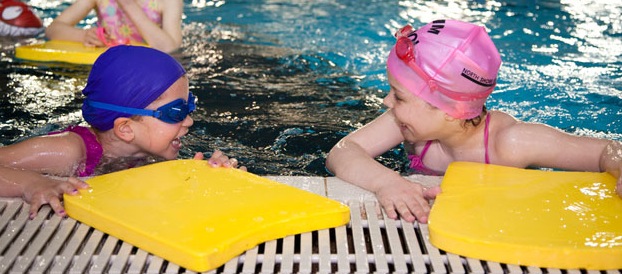New Zealand’s Hamilton City may have a tough job on hand as it proposes to re-introduce women-only swimming sessions at the council-owned swimming facility.
Aimed at attracting more women to swimming, the proposal is being labeled as “man ban” by one of New Zealand’s largest news outlet – Stuff.
Stuff reporter Aaron Leaman says, “A man ban at one of Hamilton’s public pools is in the works to lure more women into the water, but critics have slammed the idea as “separatist thinking”.
Under a proposal being worked on by city council staff, men could be excluded from the Gallagher Aquatic Centre during twice-weekly women-only swimming sessions.”
It is ironic that a mainstream publication is labeling women-only sessions as “men-ban” plan, without clearly understanding the need for such sessions.
Similar line is towed by David Farrar on KiwiBlog. “That’s fair enough – so long as male ratepayers no longer have to fund the pool.” David overlooks the fact that many sporting facilities are funded by women-ratepayers and are predominantly used by male sportspeople.
The Stuff story has evoked strong reaction.
Disappointing headline to this article, says local community leader Anjum Rahman. “To me, this issue is similar to women’s only gyms. It’s about providing access to people who otherwise wouldn’t be going to a swimming facility. I wouldn’t mind if the men had a similar session, if it meant more of them could access a pool.”
Agrees former race relations commissioner Joris de Bres. “If you frame stories like this, it’s no wonder you get a negative reaction. What’s wrong with “swimming sessions for women”. How tiresome. The separatist tag applied by the spokesperson for the residents and ratepayers is just silly.
“It’s perfectly permissible under the Human Rights Act; it’s done in a number of other centres. No one’s right to go for a swim is denied by this. I hope the Council goes ahead with the proposal.”
The article shows lack of cultural understanding of the media outlet. Hamilton is a diverse community, and it includes people from cultures where women traditionally wear loose garments and cover their heads, as well as women who have left countries which are not as peaceful as New Zealand is, says New Zealand-born Deborah Russell.
“Many of these women might like to swim, and would benefit from learning to swim, but do not want to wear the form fitting and really rather revealing clothing that New Zealanders usually wear when swimming.”
This is a classic example of people not understanding the difference between equality and equity and how treating people the same can marginalise people, says health professional Ruth DeSouza.
“I see this kind of thinking in health so often, where if a group has their unique needs met, there’s a zero sum game thinking mentality where if one group has something that responds to their unique needs, the fear is I will miss out, even though my needs are being catered to all the time.”
Many cities around New Zealand have already offered women-only sessions, including New Zealand’s biggest cities – Auckland and Wellington.
In fact, swimming lessons for Muslim women conducted at Auckland’s Cameron pool won the New Zealand Recreation Association Award for excellence, innovation and effectiveness.
The swimming programme was established in 2004 by the Auckland Somali Community Association, to help Muslim women improve their health, combat isolation and make connections within the community.
The successful programme attracts as many as 150 Muslim women from all over Auckland arrive at Cameron Pool every Sunday night just after it closes to the public at 6pm. For the next two hours, and for a nominal charge of $2, they get exclusive use of its facilities, overseen by specially trained pool staff.
Cameron Pool even provides ladies-only gym area and offers free sessions for women.



Leave a Reply